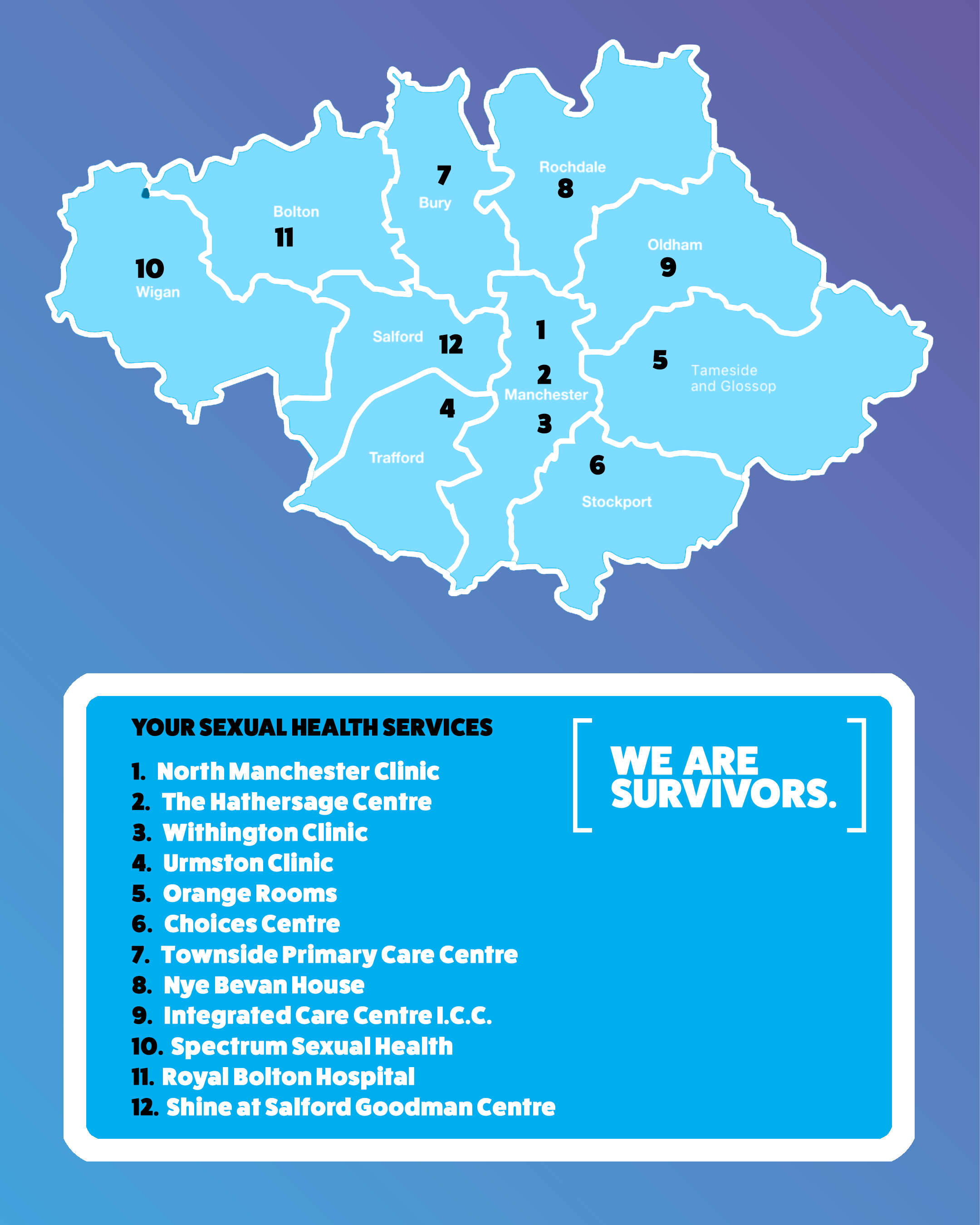For survivors, sexual health is often a difficult topic to discuss but it’s just as important as physical and mental health, and we always advocate for self-care and regular check-ups.
Sexual Health screenings can often be intimate and can be triggering for male survivors, and for this reason are sometimes avoided. We totally get that, as some of the questions can feel embarrassing or confusing. But remember, every sexual health clinic offers a non-judgemental approach. However, if it does feel intimidating for you, home test kits are also available.
Unsure where to go, see below!


















